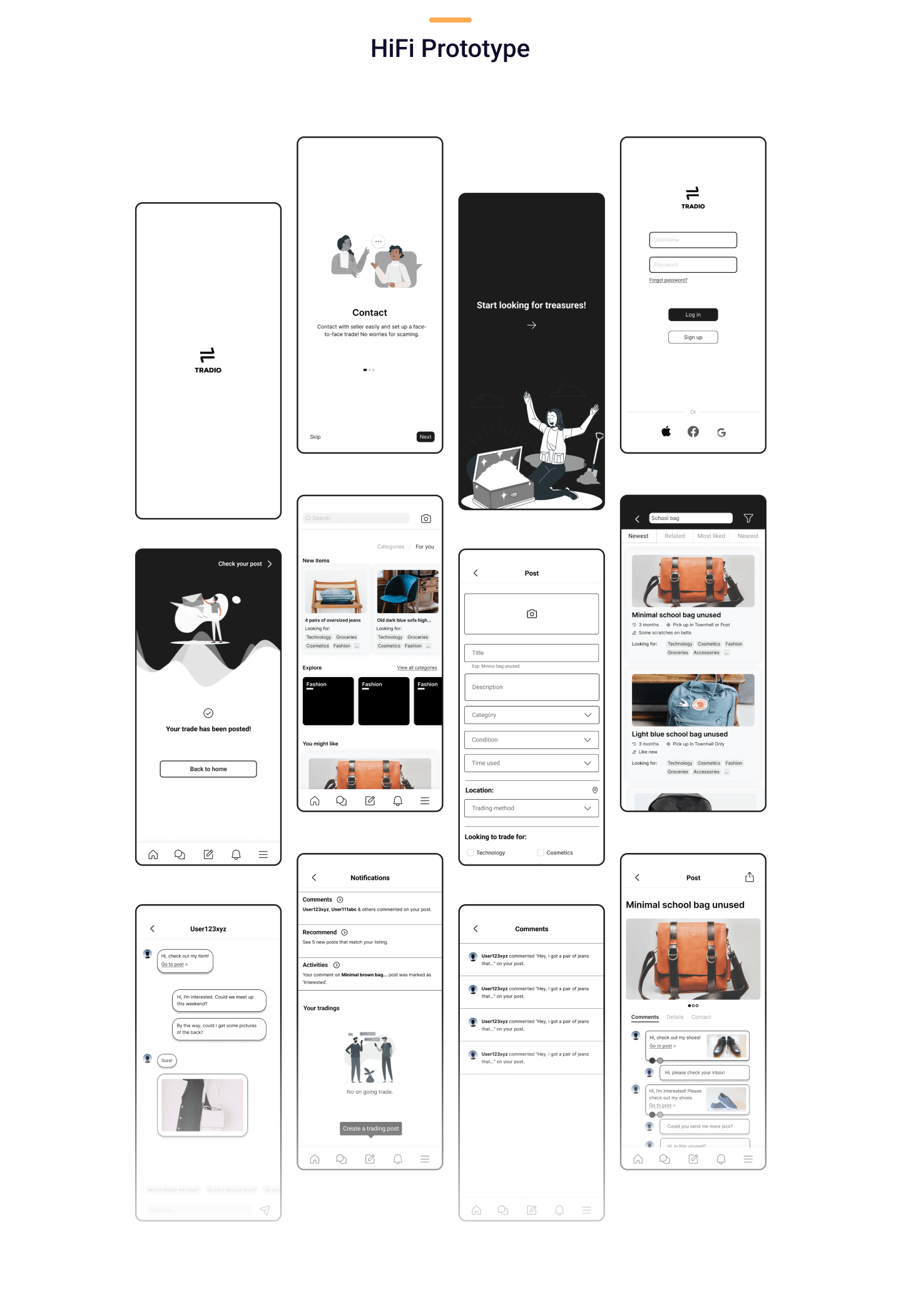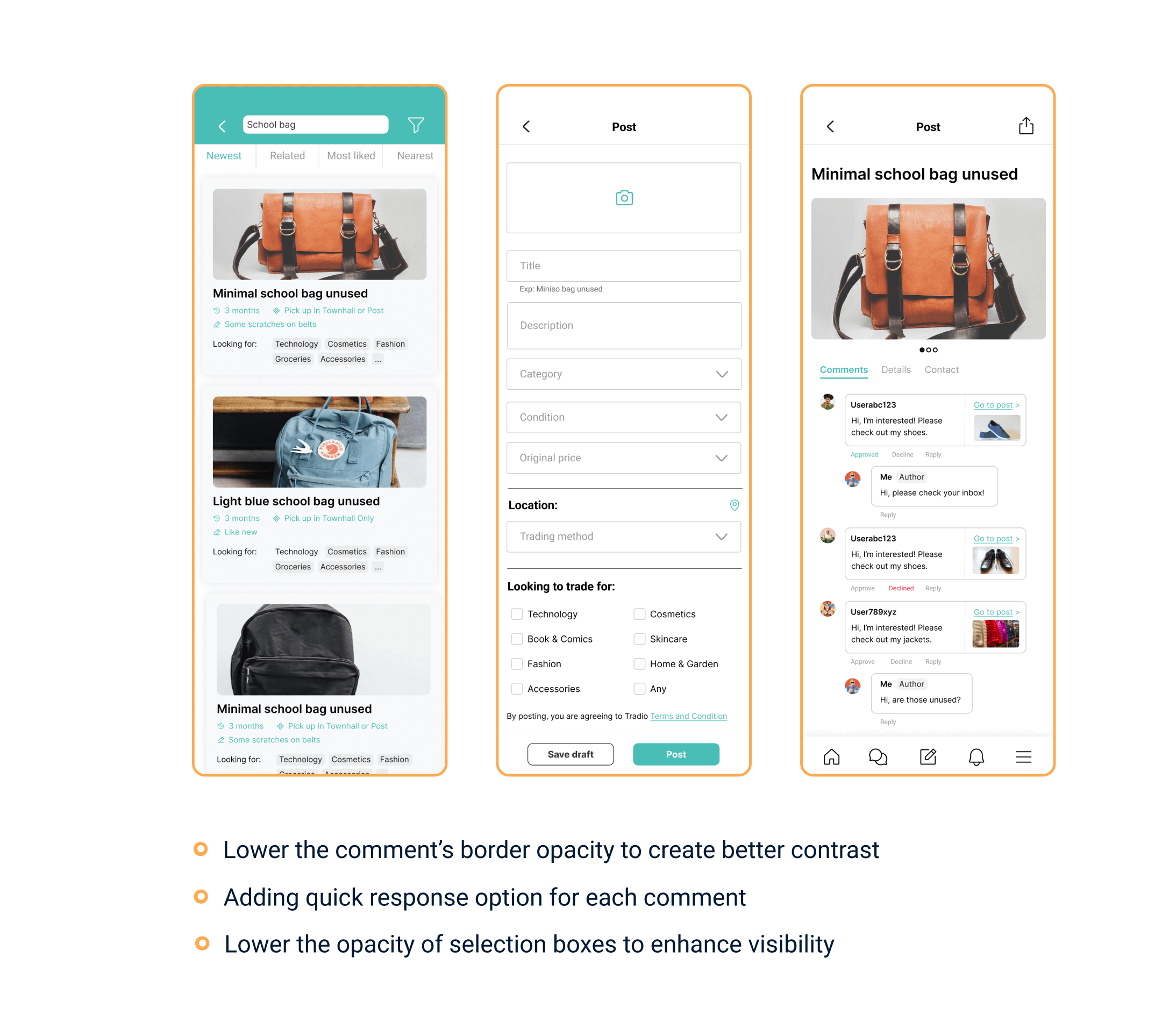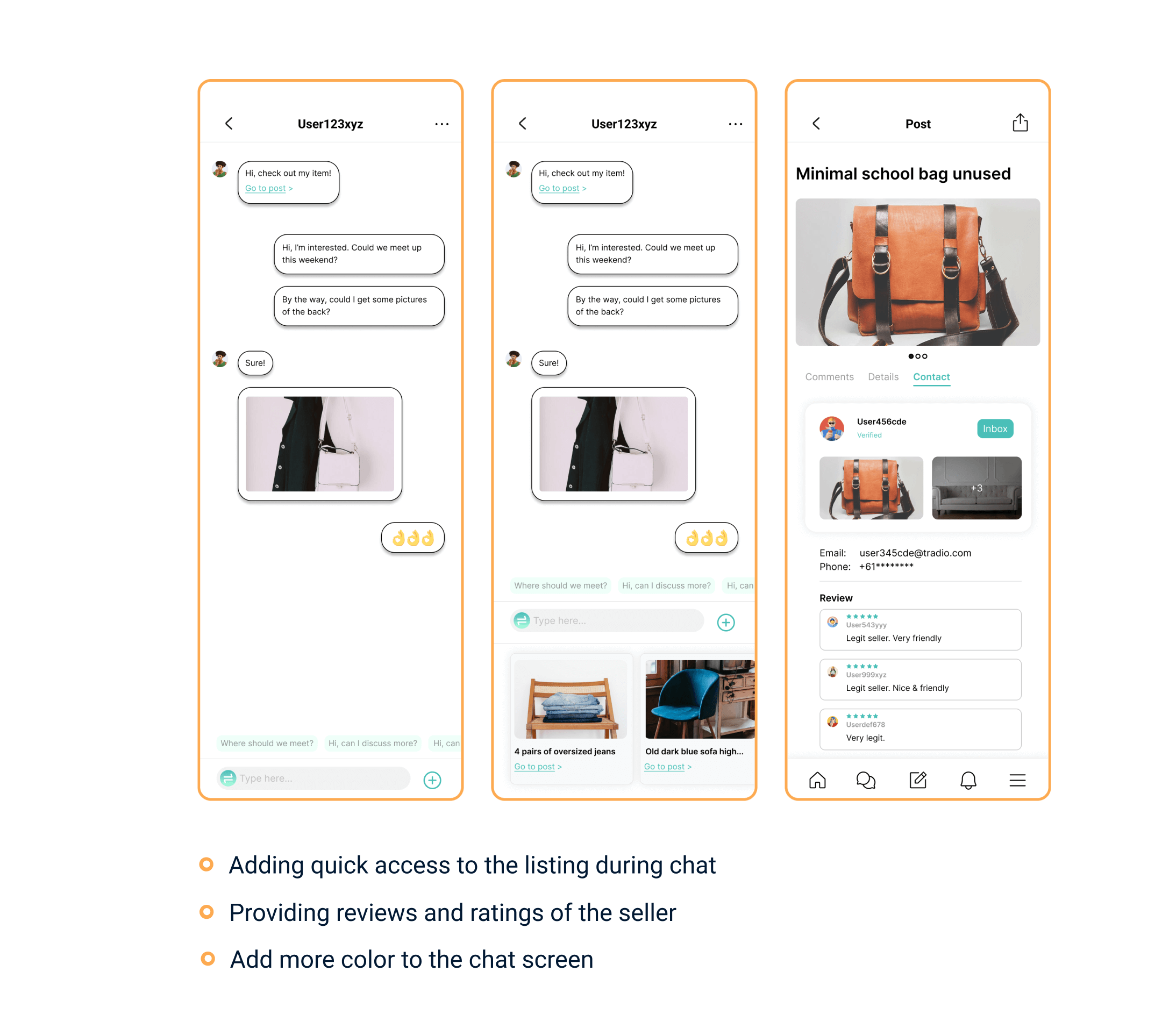Tradio - C2C Trading App
.png)
A project for helping people to fix the consequences of the unsustainable shopping habits.
1. Design Process
.png)
2. Research
Secondary Research
Before I entered Primary Research, I wanted to know about the current shopping trend for the young generation. I want to know the perspectives from Gen Z about buying/trading goods. How can I enhance their shopping experience and promote better habits?
Insight
There has been a growing consciousness of the negative impact of fast fashion on the environment. As a result, many people recognize the importance of buying used items. Niinimäki, K., & Hassi, L. (2011). Sustainable Fashion: Consumer Attitudes towards Buying Secondhand Clothing. International Journal of Consumer Studies
Observations
Thrifting is becoming a trend in young generation
People are now more aware of sustainability
Second hand shops become more popular
People like unique and vintage/nostagic goods
Second-hand clothes are still considered taboo and embarrassing by
many people
Primary Research
I did research by conducting surveys and in-dept interviews with several Gen Z generation who are the target users of the app.
.png)
.png)
.png)
Affinity Mapping/Card sorting
.png)
3. Define
Methodology: Research. Interview. Persona. Brainstorming.
Persona
.png)
Defining Problem
Based on the results of the research conducted, several problems were
found as follows:
Lack of a platform for people to trade or donate old or unnecessary
items
Hard to make decisions when there are too many options on the market
Limited budget when you want to buy things
Lack of excitement when shopping
Design Mandate
Provides a platform for people to trade stuff they do not use
Help users to check seller’s legitimacy using feedbacks
Promote a new sustainable way of shopping yet still provoke excitement
4. Ideation
Concept card
Goal: To help Gen Z in finding a way to make use of unnecessary items with the aim of breaking the unsustainable and fast shopping habits.

User flow
.png)
Wireframe
During the wireframing process, I iteratively designed and refined the basic structure and layout of our product interface, focusing on functionality and user experience.
.png)

5. Final Design & Iteration
The app, Tradio, serves as a solution for trading unused items, alleviating concerns about monetary transactions and promoting a stress-free agreement between parties. With a primary focus on unused goods, the aim is to foster sustainability rather than sales. Additionally, the element of receiving unintentional products adds an exciting and enjoyable aspect for users, enhancing their overall experience.


.png)